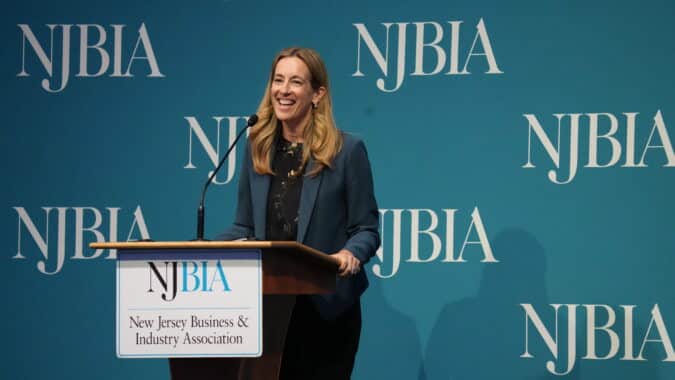The New Jersey Business & Industry Association said fiscal accountability prevailed at the Statehouse today as the Senate allowed the Aug. 8 statutory deadline to pass for placing a constitutional amendment about public pensions on the ballot in 2016, effectively shutting down the effort that would have led to yearly budget crises and tax increases for businesses and residents.
"We are pleased that policymakers have decided to not move forward this year with the plan to require quarterly pension payments through a constitutional amendment," said NJBIA President and CEO Michele Siekerka. "While fixing the pension system is important, a major issue such as this must be looked at comprehensively, taking into account the impact on the state budget and the competing priorities that the state faces each year."
Siekerka said a constitutional amendment mandating higher pension payments, which could have topped $5 billion by 2021, would have made spending on state public pensions a super-priority over all other state spending, such as public safety, healthcare and education.
"This amendment would have tied the hands of future governors and legislatures by giving them no flexibility in the budget process, and that would have ultimately led to shortfalls and higher taxes on New Jersey businesses and taxpayers in order to balance the budget," Siekerka said. "If the amendment had passed, New Jersey businesses and residents would have been facing the very real prospect of significantly higher income taxes and higher corporate businesses taxes."
Siekerka said lawmakers did the right thing by deciding to await the resolution of the Transportation Trust Fund discussions instead of moving forward with the pension amendment. Just as the pension amendment decision was made in a comprehensive manner, so too must the funding of the Transportation Trust Fund.
Any plan to increase the gas tax must include the repeal of the estate tax, which drives middle-class and wealthy residents out of the state and hurts our economy. NJBIA's survey of its 20,000 member companies found two-thirds take the estate and inheritance taxes into account when making business decisions. In the last decade the state lost $18 billion in net adjusted gross income because New Jerseyans left the state and took their income with them.
"NJBIA is hopeful that efforts to resolve the Transportation Trust Fund issue will also include the repeal of the estate tax as the first step toward establishing a fairer tax system in New Jersey—one that will make us more competitive with neighboring states, grow our economy and keep more middle-class residents and retirees here," Siekerka said.
"Without the uncertainty of the fiscal impact of the pension amendment hanging over the Statehouse anymore, we hope the Legislature and Governor can quickly reach an agreement that will make New Jersey a more affordable place to live and doesn't blow a hole in the state budget," Siekerka said.



